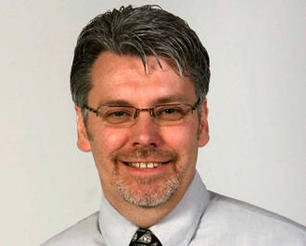 “…as all have not faith,” the Lord told the members of the early Restored Church, “seek ye diligently and teach one another words of wisdom; yea, seek ye out of the best books words of wisdom; seek learning, even by study and also by faith” (D&C 88:118).
“…as all have not faith,” the Lord told the members of the early Restored Church, “seek ye diligently and teach one another words of wisdom; yea, seek ye out of the best books words of wisdom; seek learning, even by study and also by faith” (D&C 88:118).
In the early 1980s I struggled for a brief time with my own personal testimony, brought on by exposure to LDS-critical material for which I had no answers. I was stunned, confused, and anxious. In my search for answers I stumbled upon the Foundation for Ancient Research and Mormon Studies (FARMS)—a newly formed (1979) organization of LDS scholars. The handful of writings and reprints produced by this LDS scholarly group was exactly what my fledging testimony needed.
I joined their mailing-list, purchased every publication they had, and became aware of other sources for academic studies of LDS issues—sources such as BYU Studies,Sunstone, Dialogue, and the writings of Hugh Nibley. I bought used back-copies of everything I could get my hands on to feed my craving for learning more.
In the FARMS newsletters I would occasionally get invitations to attend a lecture or other event hosted by the scholars who contributed to LDS studies. These were always held in Utah, but I was a young family-man in Colorado without the means to travel these events. In 1985 BYU hosted the first Ramses II exhibit and in my FARMS newsletter I received an invitation to attend a tour of the exhibit with Hugh Nibley as the guide. Since Dr. Nibley was my hero at that stage in my life, I was devastated that I was unable to attend.
My wife and I were convinced that we needed to move to Utah, in part, so I could be closer the Mecca of LDS scholarship. Once we settled in Ogden (north of Salt Lake City) I attended virtually every event the FARMS offered. In 1999 the Foundation for Apologetic Information and Research (FAIR) was created.
Like the original FARMS (now-defunct and replaced by BYU’s Maxwell Institute) FAIR was organized by a group of grass-roots Latter-day Saint volunteers who were interested in LDS studies. FAIR, however, was dedicated to educative apologetics (“apologetics” means to defend one’s beliefs). With a policy of non-confrontation (they didn’t want to engage in “Bible-bashing”) FAIR’s goal was to apply scholarly research and answers to the anti-LDS accusations of the Church’s critics.
Since its inception as a non-profit organization, FAIR has grown into a multi-national organization of volunteers who draw upon the best latest scholarship, and has produced books (such as my Shaken Faith Syndrome), DVDs, YouTube Videos, podcasts, a Wiki, and hundreds of articles. In 1999 FAIR held its first conference in California. In 2000 the venue was moved to Utah where it has remained ever. I attended the first Utah FAIR Conference and haven’t missed one since.
There are a few annual events I eagerly anticipate—Christmas with my family, Halloween, 4th of July, and the annual FAIR Conference. Some of the brightest LDS scholars have spoken on some of the most interesting topics ranging from such issues as Egyptology, DNA, Race Issues, Women’s Issues, the First Vision, Same-Sex Attraction, Plural Marriage, and more. The FAIR Conferences are consistently one of the highlights of my year.
This year, the 15th annual FAIR Conference will be held August 1 and 2 and promises to continue the standard of interest and excellence that has drawn increasingly larger crowds. The first FAIR Utah Conference was held in Alta. The next few years were held in Provo to provide for a greater number of attendees. For the past several years the FAIR Conference was moved to a venue in Sandy, and this year (because FAIR has outgrown the Sandy venue) it is being moved back to Provo to the Utah Valley Convention Center.
The list of speakers this year is fantastic. This year’s line of up scholars includes Ronald Barney of the LDS Church historical department who will speak on “Joseph Smith’s Visions.” Morris Thurston will present the “Kidnapping” at Palestine Grove: Missouri’s Final Attempt to Extradite Joseph Smith. Don Bradley will speak on The Original Context of the First Vision Narrative: 1820s or 1830s.
Salt Lake Tribune humor columnist, Robert Kirby will present, Why It is Important to Laugh at Ourselves, and Lynne Wilson’s topic will be, Was Joseph a Product of the Second Great Awakening? Dr. Mark Alan Wright, a specialist in Mesoamerian Archaeology will present, Heartland as Hinterland: The Mesoamerican Core and North American Periphery of Book of Mormon Geography. Rosalynde Welch will discuss “Disenchanted Mormonism,” and Seth Payne will speak on “Why Mormonism Matters: Pastoral Apologetics and the LDS Doubter.”
Ralph Hancock will reflect on “Mormonism and the New Liberalism: The Inescapability of Political Apologetics,” Maxine Hanks will present, “Working With the Church: Another Narrative,” and Daniel Peterson (a perennial favorite) will address, “Toward a More Effective Apologetics.”
In addition to this awesome list of speakers and subjects, the FAIR Conference will host two panel discussions: Charity Never Faileth: Seeking Sisterhood Amid Different Perspectives on Mormon Feminism, with Neylan McBain, Valerie Hudson, Wendy Ulrich, Kris Fredrickson, and Maxine Hanks.
The second panel is entitled, The Loss and Rekindling of Faith, and will include panelists, Bill Reel, Don Bradley, Janet L. Eyring, and Maxine Hanks.
Anyone interested in Mormon studies should attend. Early-bird discounts are still available until July 28 but even if you miss the discount, the “study and faith” you’ll gain from this assemblage of speakers will be worth far more than the price of the ticket. You can get all the info here, and I hope to see you there.
*This article was also published in Meridian.

[…] http://www.fairblog.org/2013/07/25/a-gathering-of-study-and-faith/ […]